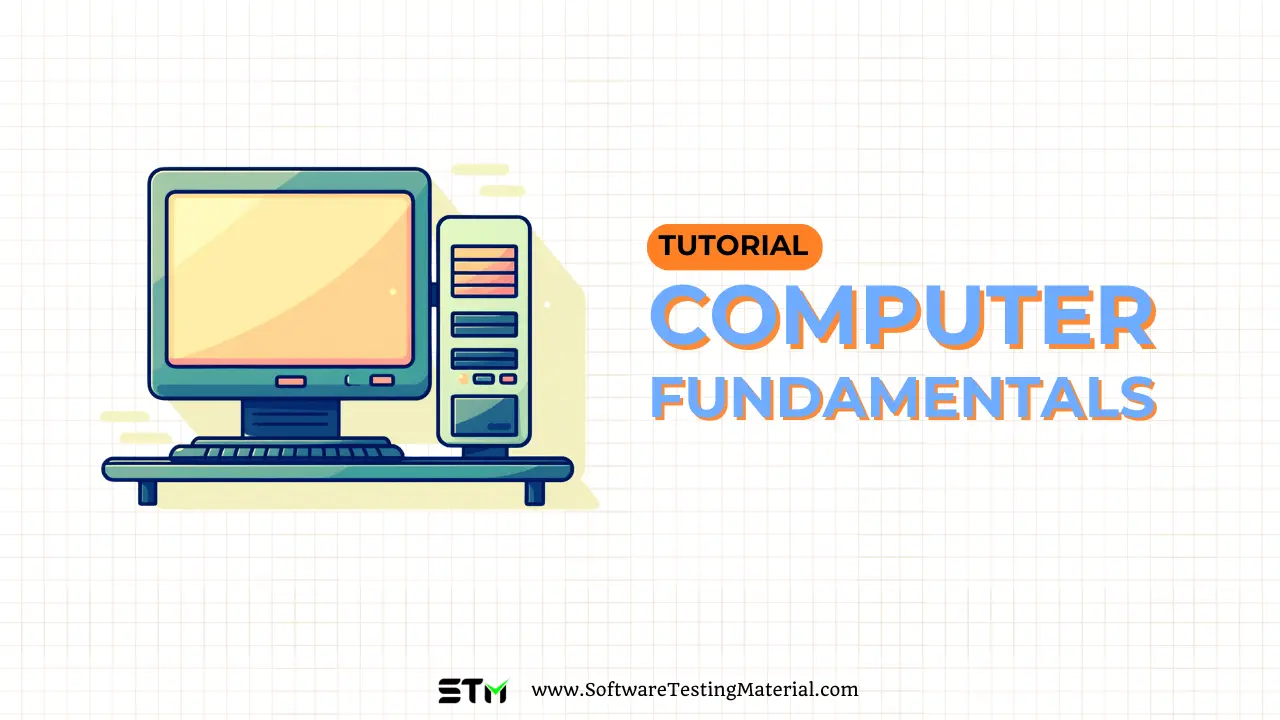
Welcome to our comprehensive Computer Fundamentals Tutorial! Whether you’re a complete beginner or someone looking to refresh their knowledge, this guide will walk you through the essential concepts of computer technology.
In today’s digital age, understanding how computers work is crucial for personal and professional growth. This tutorial will cover everything from basic hardware components to software applications, operating systems, and internet basics.
By the end of this guide, you’ll have a solid foundation in computer fundamentals, empowering you to use computers more effectively and confidently.

This tutorial offers a thorough overview of the essential concepts and functions that constitute computer fundamentals.
For a Computer Fundamentals Tutorial, the prerequisites are minimal. Here’s what you can include:
Note: No prior computer experience is required for this tutorial.
Computer fundamentals are the basic building blocks of how computers work. They include understanding hardware (the physical parts of a computer like the monitor, keyboard, and hard drive), software (the programs and applications that run on the computer), and how they interact with each other. This foundation also covers operating systems (like Windows or macOS) and networking (how computers connect and communicate with each other). Knowing these basics helps you use computers effectively and prepares you for more advanced topics in technology.
1. Hardware: These are the physical parts of a computer, like the monitor, keyboard, mouse, and the internal components such as the CPU and memory.
2. Software: These are the programs and applications that tell the hardware what to do. Examples include web browsers, word processors, and games.
3. Operating System: This is the main software that manages all the other software and hardware on the computer. Examples are Windows, macOS, and Linux.
4. Data Storage: This refers to how a computer saves information. Common storage devices include hard drives, SSDs, and USB flash drives.
5. Networking: This is how computers connect and communicate with each other, usually through the internet or local networks.
Understanding these basics helps you use computers effectively and prepares you for more advanced topics in technology.
A computer is an electronic device that processes data and performs tasks according to a set of instructions, known as a program. It can store, retrieve, and manipulate data quickly and efficiently. Computers are used for a variety of purposes, including writing documents, browsing the internet, playing games, and managing accounts. They come in various forms, such as desktops, laptops, tablets, and smartphones.
The full form of COMPUTER is Common Operating Machine Purposely Used for Technological and Educational Research. This is a backronym, meaning the full form was created to fit the word “computer”. In reality, a computer is an electronic device capable of processing data, performing calculations, and executing various functions to assist with everyday tasks and advanced computations.
The time it takes to learn computer fundamentals can vary depending on the individual and the learning method. However, with regular practice and study, most people can grasp the basics within a few weeks to a few months. This tutorial can all help speed up the learning process.
No, computer fundamentals are not just for technical professionals. They are important for everyone because we use computers in our daily lives for things like sending emails, browsing the internet, and using apps. Knowing the basics helps us use technology more effectively, whether at work, school, or home.
To prepare for computer fundamentals, it is beneficial to go through this comprehensive computer fundamentals tutorial. This will provide you with a structured learning path covering the essential topics in a logical sequence. Additionally, hands-on practice is crucial. Spend time working directly with computers. By combining theoretical study with practical application, you will build a strong foundation in computer fundamentals.
Yes, you can learn computer fundamentals without any prior technical knowledge. This tutorial is designed for beginners, explained concepts in simple terms and step-by-step instructions. With practice and patience, you can build a strong understanding of how computers work.
Understanding computer fundamentals can greatly improve your job prospects. Many jobs today require basic computer skills such as using word processors, spreadsheets, and email. By knowing these basics, you can perform tasks more efficiently, making you a more attractive candidate to employers. Additionally, strong computer skills can open up opportunities in IT and other tech-related fields, giving you a competitive edge in the job market.
Congratulations on completing our Computer Fundamentals Tutorial! You’ve taken an important step in understanding the basics of computer technology. We’ve covered a wide range of topics, from the physical components of a computer to the software that makes it run, as well as essential concepts like operating systems, file management, and internet basics.
Remember, the world of technology is constantly evolving, so continue to learn and stay curious. With this foundational knowledge, you’re now better equipped to use computers effectively in your daily life and potentially explore more advanced topics in computer science. Whether you’re using a computer for work, study, or personal projects, the skills you’ve learned here will serve you well. Keep practicing and exploring, and don’t hesitate to refer back to this tutorial whenever you need a refresher. Happy computing!
Rajkumar SM is a founder of SoftwareTestingMaterial. He is a certified Software Test Engineer by profession and a blogger & a YouTuber by a choice. He has extensive experience in the field of Software Testing. Furthermore, he loves to be with his wife and a cute little kid 'Freedom'.